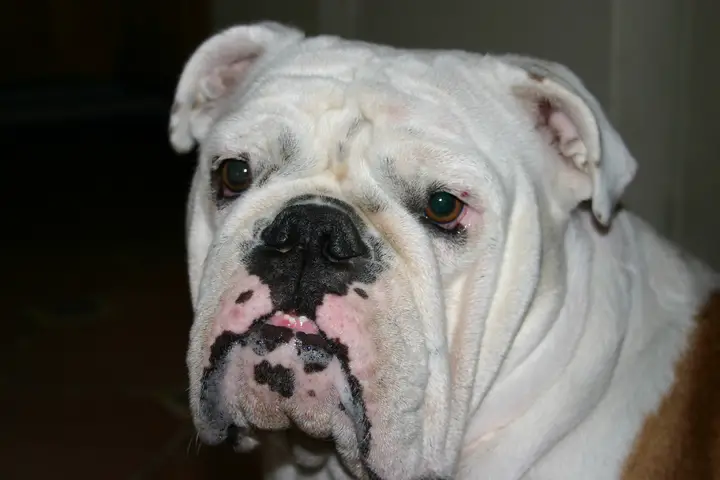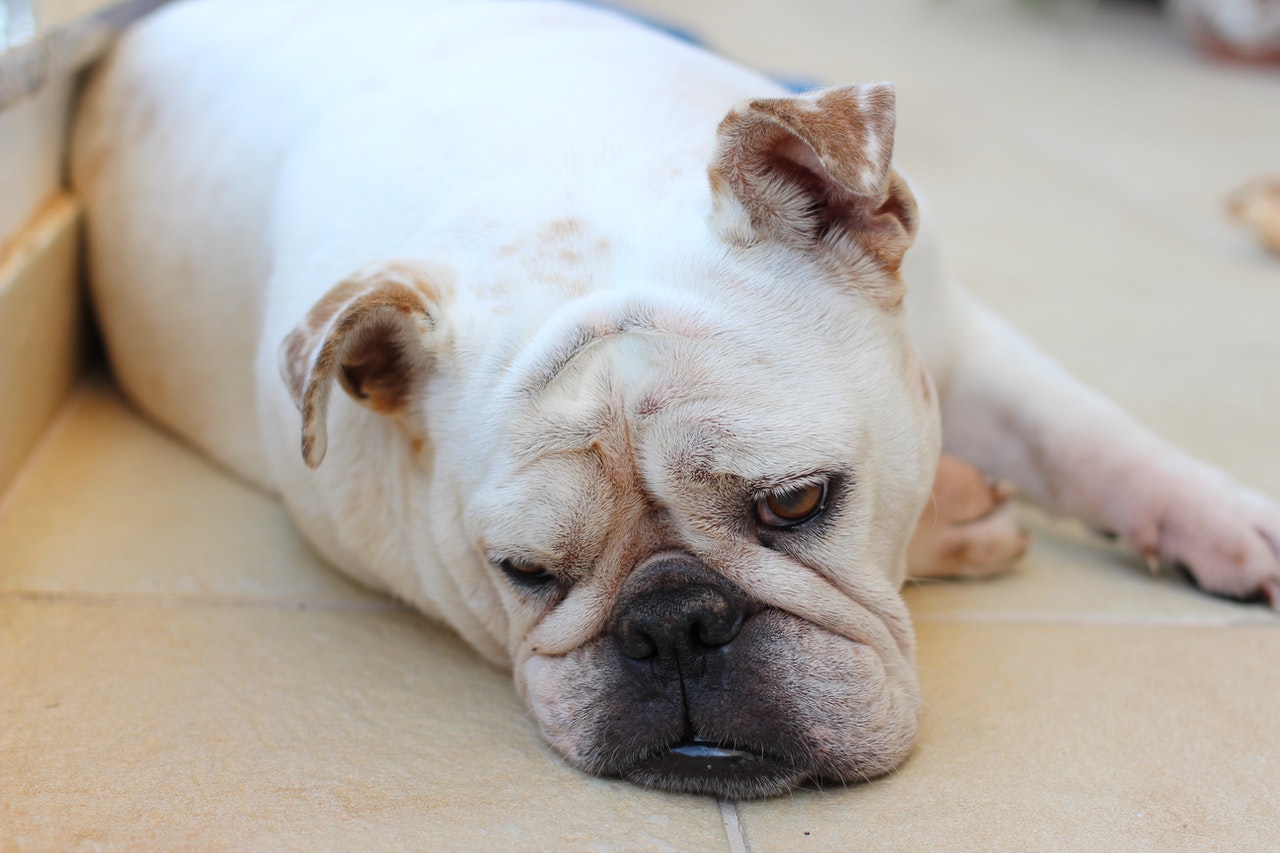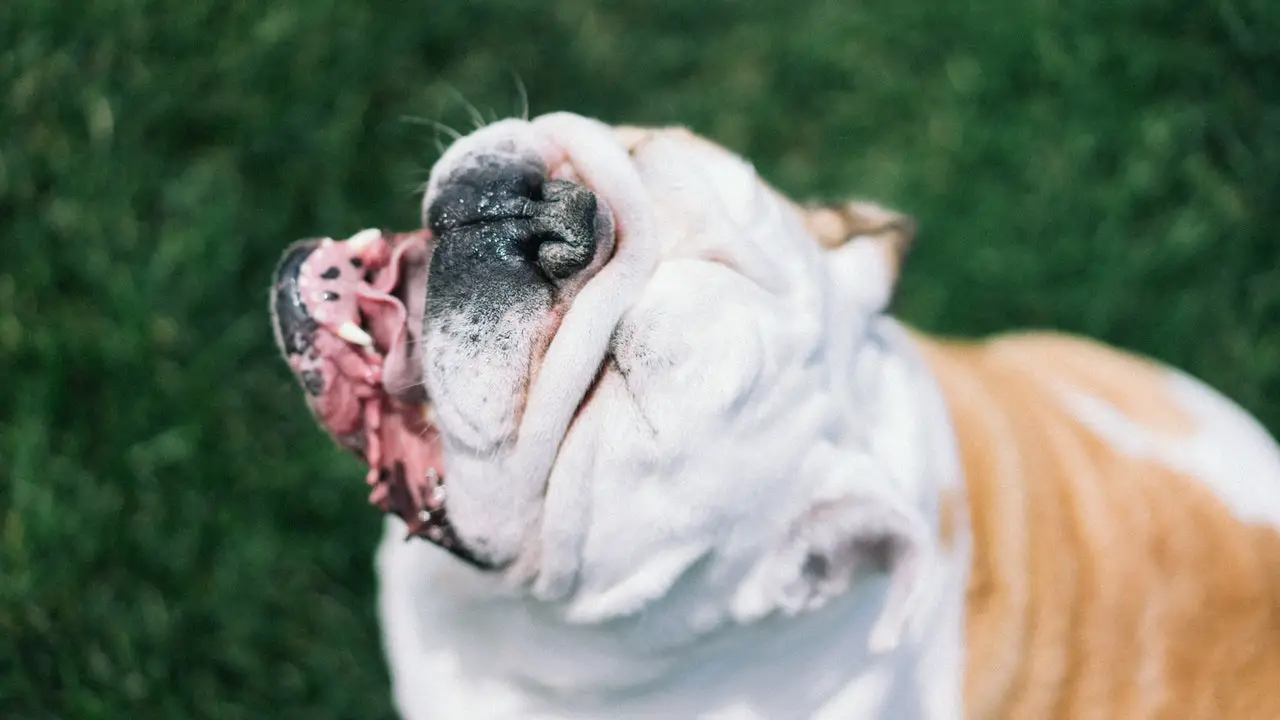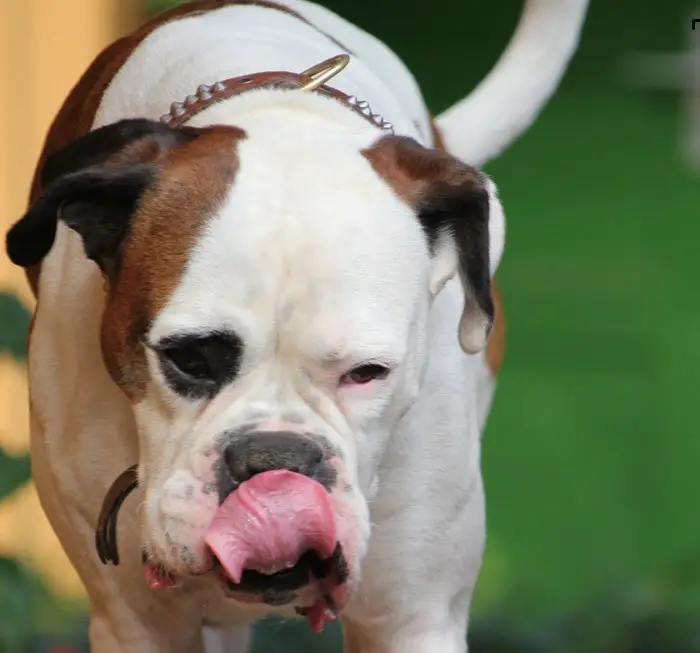It’s normal for a dog to have a moist nose, but when it starts to get runny, you have to be concerned. A runny or drippy nose in dogs often indicates a problem. So why is my dog’s nose dripping? This symptom can point to problems like kennel cough, mites, stuck foreign objects, poison exposure, and even a dreaded tumor.
As we always say, only your dog’s veterinarian can determine the real culprit behind your pet’s dripping nose. Whether it’s serious or not, it pays to consult the vet for your dog’s health and your peace of mind.
To give you an idea, we discussed below some of the possible reasons why. Just remember that these are general points that may or may not apply to your pet.
Why is my dog’s nose dripping?
As with humans, there are many reasons why your dog’s nose is dripping. It can be anywhere from a minor irritation that goes away on its own or a much more serious condition that requires immediate veterinary attention.
Below are some of the potential situations:
🐶Body temperature regulation

As mentioned, dogs have naturally moist noses. This is part of the canine’s temperature regulation since they don’t sweat as humans do.
Moreover, dogs have several sweat pads on specific areas of their bodies. These are found on their paws and noses.
With this, your dog’s dripping nose can be due to its body’s effort to cool down. This is much so if the temperature is hotter than normal or if your pet is outdoors.
While a dripping nose due to thermoregulation is normal, you should consider this an early sign of potential overheating. It’s more common in brachycephalic breeds like Bulldogs.
In this case, you should bring your dog to a well-ventilated area to help it cool down faster. This is also to prevent the condition from escalating into a full-fledged case of heatstroke.
Still, nose moisture due to thermoregulation shouldn’t yield colored nasal discharge. If this happens, your dog is experiencing other conditions.
🐶Exposure to irritants
On another note, a dog may experience a bout of a drippy nose if it inhaled irritants. It can be anywhere from dust, pollens, smoke, or even your perfume.
Aside from that, fumes from cleaning products can also trigger nasal discharge in dogs. This is the body’s way of lubricating the nasal cavity to flush out the irritants. In most cases, it will go away once your dog is no longer exposed to the irritant.
However, some canines may suffer more serious reactions. If your pet is allergic to any of the mentioned allergens, it may exhibit other symptoms like coughing, hives, poor appetite, and lethargy.
In rare cases, a canine may suffer from anaphylactic shock due to allergens. When this happens, you should rush your dog to the veterinarian.
Overall, any dog can react negatively to various environmental irritants. However, breeds like English Bulldogs, Pugs, and French Bulldogs tend to be more predisposed due to their sensitive respiratory system. So if you own this breed, it’s important to keep them away from such allergen as much as possible.
🐶Exposure to poison

Exposure to toxic substances like rodenticides can also trigger a dripping nose in canines. If your dog accidentally ate this rat poison, it will suffer from internal bleeding. It will trigger a nasal charge, which will start as a runny, pinkish substance until the canine emits blood from its nose.
Aside from nasal discharge, consumption of rodenticides will cause bloody stools, breathing problems, blood coughing, and other fatal symptoms in dogs.
The tricky part here is that these symptoms don’t surface right away in some dogs. Other canines may take up to five days to exhibit symptoms of rodenticide poisoning. So if you caught your dog in the act of eating rat poison, you should bring it to the vet just the same even if it looks fine hours after.
Depending on your dog’s size and the amount of poison it ingested, its condition can be life-threatening. And while there are available first-aid medications, it’s still important to bring them to the vet for an in-depth check.
Also, poisoning can happen if your dog ate a rat that’s been exposed to the rodenticide. Even if you’re not sure whether the rat ate the poison, it’s best to err on the side of caution and bring the pooch to the vet.
🐶Kennel cough
Another reason why dogs will have dripping noses is kennel cough. This condition is an umbrella term for contagious and infectious illnesses in canines wherein coughing is the most dominant symptom.
Kennel cough is called as such because it often occurs on canines kept in shelter kennels. Because of this situation, kennel cough can easily spread to other dogs.
Moreover, a dog with kennel cough often suffers from a runny nose, persistent and whopping cough, reverse sneezes, and other respiratory symptoms.
Usually, dogs exposed to cold temperatures, crowded shelters, and smoke are more likely to develop kennel cough. Interestingly, travel-induced stress is also a factor that may increase a canine’s risk of having this problem.
The good news is that kennel cough is highly preventable in dogs. There are annual medications that can be administered to dogs through vaccination or nasal misting.
If treated early, most dogs with kennel cough will recover within weeks’ time. However, if not addressed, a canine’s kennel cough can develop into pneumonia, which can be life-threatening.
🐶Foreign objects

If your dog is in the pink of health, you may want to check for a foreign matter stuck up its nose. A blade of grass, a small portion of its toy, tissue paper, and so on – all of these can get into the nasal cavity of bored canines.
Due to the foreign object, your dog’s nose will increase the production of mucus. It’s the body’s way of flushing out irritants, which will eventually make the dog’s nose drip.
At first, you may notice your dog’s nose being runny. If the foreign matter isn’t removed, it can lead to swelling and breathing difficulties, which is dangerous for breeds like Bulldogs.
Overall, a foreign object stuck on a dog’s nose can also trigger infections in the long run. So if you suspect that something is on your pet’s nasal cavity, you shouldn’t hesitate to call the vet.
You’ll be surprised by the items that can get shoved into your dog’s nose. After all, they are like toddlers, especially when bored.
🐶Dental problems
Dental problems can also make a dog’s nose runny. It’s because dental conditions like abscesses and gum disease can trigger a massive infection along the canine’s sinus cavities. When this happens, your pet will experience repetitive sneezing and a dripping nose.
If your dog’s dental abscess becomes chronic, it can also drain into the canine’s nose. It’s an alarming condition as dental problems not only affect the mouth but the entire body as well. The infection in your dog’s mouth can easily spread around the body through the bloodstream.
Since a drippy nose isn’t a primary symptom of dental problems, it’s easy to overlook the problem. The best thing to do is conduct a quick check of your pet’s mouth and see if there’s any swelling, discoloration, bad odor, or unusual discharge. All of these are indicative of an ongoing infection.
🐶Nasal tumor or polyp

Nasal tumors or polyps can also trigger severe and ceaseless runny noses in dogs. Aside from that, dogs with this problem will also experience nosebleeding and visible facial deformities as the tumor grows bigger.
Overall, nasal tumors only comprise 1% of all cancer diagnoses in canines. Also, it’s more prevalent in older dogs than puppies.
However, it’s still best to get your dog checked if you notice a growing lump on its face accompanied by a dripping nose. The vet will have to conduct a CT scan to confirm the presence of the tumor. After that, a biopsy test will follow to determine whether the growth is cancerous or not.
Take note that nasal tumors can be deadly even if it’s not malignant. As it grows, the tumor can block your pet’s airway, which will increase the nasal discharge. It will also start to affect the eyes and surrounding facial features.
🐶Nasal mites
If your dog isn’t positive for any of the mentioned conditions above, you should have it checked for nasal mites. These mites can infect a canine’s sinus, which will lead to a runny nose, constant head shaking, sneezing, coughing, and a poor sense of smell.
Take note that these symptoms will worsen and become worse as your pet’s condition is left unchecked. Also, nasal mites rarely go away on their own untreated.
Instead, you should bring your pet to the vet clinic for proper medication. Usually, ivermectin is used to treat nasal mites in dogs either through an oral or injectable form.
Other medications can be given to your dog based on the findings of the vet. If there are severe infections already present, your pet may need to undergo other tests and treatments.
What can I do with my dog’s drippy nose?
When it comes to your dog’s drippy nose, early diagnosis is the key in case the pooch is suffering from a serious illness. Basically, we recommend that you perform the following:
- Inspect your dog’s nose. Using a small flashlight, try to check the nasal cavity of your dog for any foreign object. You should also perform a quick check of your pet’s mouth to see if there are dental problems.
- List down the symptoms. If your dog’s runny nose is accompanied by other symptoms, make sure that you list it down. This will be a big help at the vet’s clinic for faster diagnosis and treatment of your pet.
- Get your dog vaccinated. It’s important to have your pet vaccinated against kennel cough. You should also complete core shots as well as a few non-core shots as the need arises.
- Know your dog’s allergies. Pet owners should be aware of their dogs’ allergies. This way, you can limit potential exposure that could cause a runny nose.
- Keep toxic substances away. If you’re using rodenticides to manage a pest problem at home, you should evacuate your pet until the area is clear. This is to prevent the ingestion of the poison or dead rats exposed to the substance.
- Keep the dog hydrated. Since a drippy nose is a sign of overheating, it’s important to hydrate your dog all the time. You should provide a clean bowl of water all day long, so your pet can drink whenever it likes.
- Go to the vet. If you’re not sure what’s causing your dog’s runny nose, you should consider going to the vet. Remember that some triggers of this problem can’t be diagnosed through external examination alone.
Frequently Asked Questions
Q: How will I know if my dog has a nasal infection?
A: Dogs with nose infections will often have a colored discharge. You’ll also notice swelling, reverse sneezing, difficulty breathing, and an awful smell coming out of its nose. In this case, you should bring your pet to the vet to get checked properly. This is to prevent the nose infection from becoming a much bigger problem later on.
Q: Why is my dog sneezing mucus?
A: If your dog is sneezing mucus, it’s possible that the canine inhaled foreign substances. It’s because increased mucus production in a dog’s nose is its body’s effort to expel the irritant. The manner of sneezing is also a non-voluntary reaction of your canine to the substance it inhaled.
Q: What does it mean when a dog’s nose is wet or cold?
A: A dog’s nose is an integral part of its body’s thermoregulation. When a canine is feeling hot, its nose will become moist and cool. It’s like their noses are sweating to cool down their overheating body. However, if your pet’s nose feels unusually warm to the touch, it might be suffering from fever or other health problems.
Q: Should my dog’s nose be wet?
A: A dog’s nose is normally wet because they use it to cool down their bodies. However, it shouldn’t be too runny or dripping. If this is so, your dog is probably suffering from a respiratory problem or health problem in general. It’s best to consult your dog’s veterinarian for the right diagnosis.
Q: Does a dog’s nose indicate health?
A: A dog’s nose says a lot about its health. If your pet’s nose becomes runny, it may indicate a case of allergies, stuck foreign matter, infections, and other serious illnesses. If your dog’s runny nose isn’t going away for days, it’s best to consult the veterinarian right away. This is much so if your dog isn’t fully vaccinated against illnesses like kennel cough.
Final words
Why is my dog’s nose dripping? This condition can be nothing serious, but it can also be a case of kennel cough, overheating, stuck foreign objects up your dog’s nose, and even tumors. If you’re worried and can’t seem to figure out what’s wrong with your pet, the vet is always the right person to consult.
Overall, a dog’s nose should only be slightly wet, but not runny. Also, there shouldn’t be a discharge of any kind.

